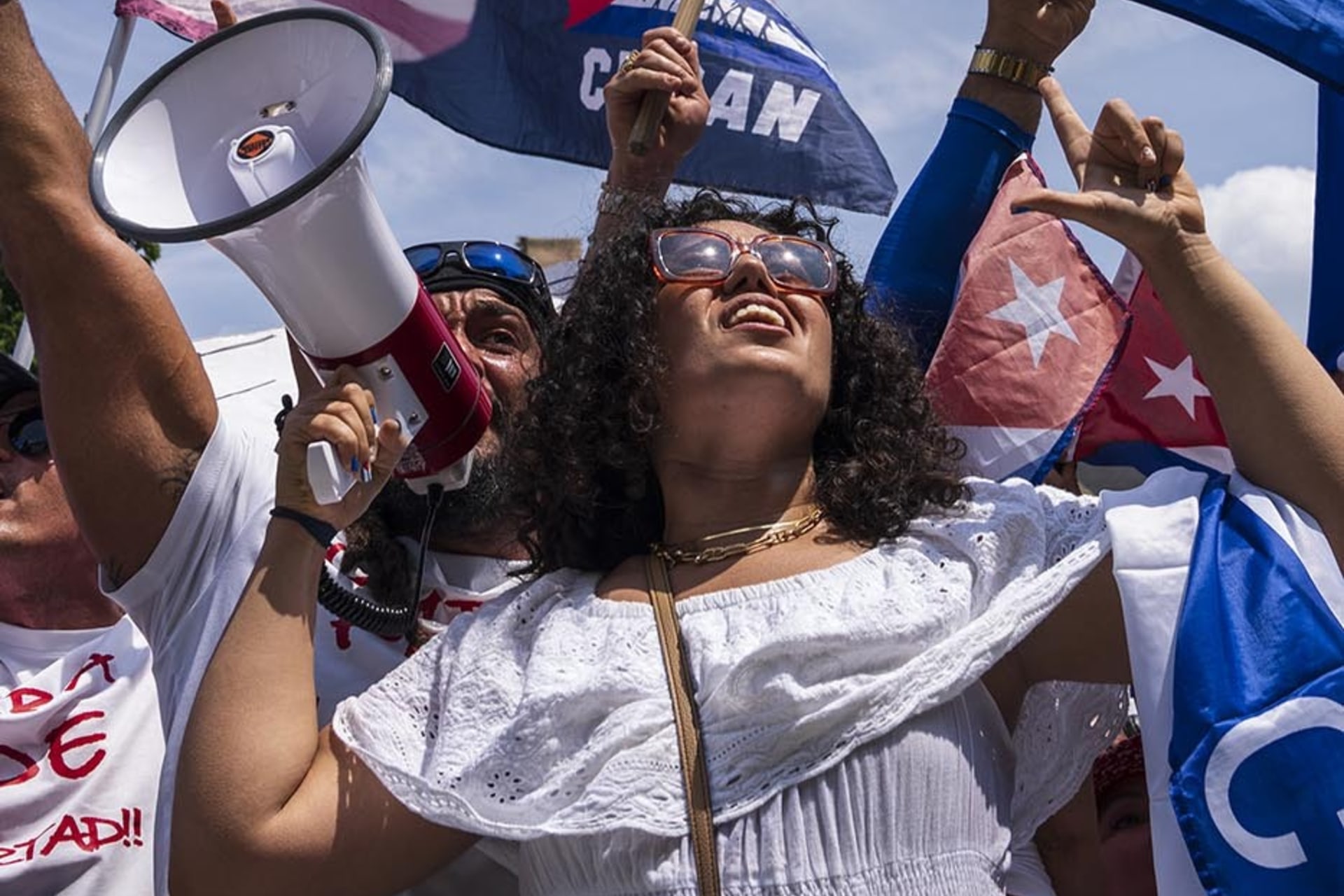Understanding Kenya’s Politics
Published
While some reports attribute Kenya’s postelection crisis to tribalism, most analysts see weak political institutions at the root of problems.
This publication is now archived.
Introduction
Until late 2007, Kenya was considered one of the most stable countries in Africa. It has functioned as East Africa’s financial and communications hub, the headquarters of many international nongovernmental organizations, and a magnet for tourism. Analysts looked favorably upon its healthy and broad-based economic expansion under President Mwai Kibaki, which stood in marked contrast to the growth of countries such as Angola and Equatorial Guinea that depend on the export of a single commodity—oil. Yet disputed elections in late December 2007 spurred outbreaks of violence across the country that killed more than six-hundred people. That prompted some fears that Kenya would split on tribal lines and descend into prolonged unrest. Experts say such a scenario is unlikely, but also suggest that prior depictions of Kenya’s stability were premature. Kenya is a young democracy, they say, and its weak institutions—not inherent ethnic divisions—are at the root of the current political crisis.
The Power of the President
In Kenya, most institutions—including the judiciary, parliament, and the electoral commission—are subservient to the president. The president appoints high court judges and electoral commissioners, has the power to dissolve parliament, and controls the federal budget. The extent of presidential power is a holdover from the colonial period, experts say, and has changed little since independence in 1963. For instance, the president still appoints provincial and district commissioners, who oversee municipal services such as education, health, and transportation. David Anderson, director of the African Studies Center at Oxford University, says these commissioners function like a “shadow government entirely in the control of the president.” Districts known to be supportive of the opposition party, or with opposition parliamentarians, tend to receive fewer resources than those controlled by the ruling party, he says.
Members of parliament are elected by the general population but parliament has little power to address public grievances. When voters realize elected officials aren’t going to address their concerns about social and economic inequality, this leads them to distrust institutions and produces a “sense of disempowerment and disillusionment,” says Calestous Juma, a Kenyan professor of international development at Harvard University. The electoral commission’s inability to resolve disputes over the legitimacy of vote tabulation following December 2007 elections served as further evidence that Kenya’s political institutions could not be considered independent.
Kenyans have not traditionally identified themselves by ethnic group and studies have shown they do not have significant feelings of ethnic injustice.
Widespread corruption has further eroded public trust in political institutions. Kenya ranked 150 out of 180 countries on Transparency International’s Corruption Perceptions Index, the same ranking as the Democratic Republic of Congo and Liberia, both of which recently emerged from civil war. The Kenya Bribery Index 2007, published by the Kenya branch of Transparency International, reported than Kenyans paid twice as many bribes in 2006 (PDF) as the previous year, but noted that the total sum paid by each person remained the same because each bribe was smaller.
Parliament has made efforts to fight corruption. In the past five years, it has made “enormous strides” in establishing a committee system, which includes oversight committees, says Joel D. Barkan, senior associate at the Center for Strategic and International Studies and professor emeritus of political science at the University of Iowa. Advocates of further reform note that parliament is still expected to rubber stamp the executive branch’s budget, and lacks the ability to review the president’s judicial and cabinet appointments.
Winner Take All: A History of Political Violence
Experts say elections are dominated by a winner-take-all mentality due to the consolidation of power in the executive branch. Though Kenya has had multiparty elections since 1992, the opposition has little power in the government. “If you lose the election, you have nothing to do,” says Anderson. As a result, opposition MPs often don’t even show up to conduct the business of parliament, he says.
Because elections are such high-stakes affairs, political candidates are accustomed to hiring groups of young, armed men to protect their interests (this practice is also common in Nigeria). Each poll since the introduction of multiparty elections—in 1992, 1997, and 2002—has been accompanied by low-level outbreaks of violence. Most experts trace this violence back to tactics that President Daniel arap Moi, who led the country from 1978 until 2002, used to divide the population and retain political power. “When Western donors compelled Moi to institute multiparty politics, his reaction was to make a prophecy that it would end in ethnic violence,” says Anderson. While there was not a history of ethnic violence under British rule, colonial officials fostered divisions among Kenya’s ethnic groups to prevent them from uniting against their rulers.
If we don’t create a new constitutional order, we will have even a bigger crisis in the future” — Calestous Juma, Kenyan professor of international development at Harvard University.
Experts say this ethnic tension was stoked and manipulated by Moi. Kenya has forty-one different ethnic groups; the Kikuyu, with 22 percent of the population, is the most educated and prosperous group. When Moi, who is Kalenjin, faced the prospect of losing power to an opposition party that contained many Kikuyu, he started an anti-Kikuyu campaign and incited land clashes in the Rift Valley between Kalenjins and Kikuyus in 1992 and 1997. Major rights groups such as Human Rights Watch and Amnesty International have reported extensively on the state-sponsored nature of this violence.
By the 2002 election of President Mwai Kibaki, who is Kikuyu, such political violence had become routine. According to Afrobarometer (PDF), an independent research project on public opinion in sub-Saharan Africa, 66 percent of Kenyans said in 2005 that competition between political parties “often” or “always” leads to violent conflict (up from 54 percent in 2003).
Political and Economic Tensions with an Ethnic Face
News reports were quick to label the violence that followed December 2007 presidential elections as tribal, but some experts say this is a gross oversimplification. Contrary to prevailing attitudes, Kenyans have not traditionally identified themselves by ethnic group and studies have shown they do not have significant feelings of ethnic injustice. In a 2003 Afrobarometer survey, 70 percent said they would choose to be Kenyan if faced with a choice between a national identity and their ethnic group (28 percent refused to identify themselves as anything but Kenyan). Analysts say much of the unrest that erupted after the December 2007 polls was just the latest display of politically organized violence. Political coalitions on both sides hired thugs to do their bidding, and ordinary Kenyans were caught in the cross fire, they say.
Though much of Kenya’s ethnic violence can be attributed to political manipulation, there are economic inequalities between some ethnic groups, and long-standing bitter disputes over land, particularly in the Rift Valley. According to the 2007/2008 UN Human Development Index, Kenya ranks 148 of 177 countries on income inequality. Many Kenyans believe the Kikuyu have accrued a disproportionate percentage of the benefits of Kenya’s recent economic growth. The head of the Nairobi Stock exchange, the Central Bank of Kenya, and Kenya Electric Generating Company, the region’s largest power generator, are all Kikuyu (Bloomberg). These are “economic issues that get reflected through ethnic institutions,” says Harvard’s Juma.
Because Kenya’s political system concentrates power in the hands of the president and his political cronies, it only exacerbates these economic inequalities, experts say. A book on inequality in Kenya, published by the Nairobi-based Society for International Development, says there is evidence that political patronage in Kenya’s public spending has increased economic and regional inequalities (PDF). The president of the African Development Bank, Donald Kaberuka, told the Financial Times that the inequality issue is a chief source of Kenya’s problems, saying: “40 percent of [Kenya’s] people live in urban areas and many of them in slums. This is where this volatility arising from inequalities comes from.”
Constitutional Reform
There is broad consensus within and outside Kenya that the country needs constitutional reforms that strengthen local government and rectify regional resource imbalances. There has been a push for such reforms since 1991, and some experts say the current political stalemate offers an opportunity to catalyze action. “If we don’t create a new constitutional order, we will have even a bigger crisis in the future,” says Juma. Others think there is a short-term opportunity for incremental reforms, including establishing an independent electoral commission and eliminating the president’s power to dissolve parliament. These could be combined with an agreement on basic constitutional principles, says Barkan.
There is evidence that political patronage in Kenya’s public spending has increased economic and regional inequalities.
Most interested parties, save for the president and his advisers, agree that power should be shifted from the executive branch to strengthen the judiciary and parliament. But experts disagree on how to achieve that shift, and what other elements are necessary for effective constitutional reform. Some, including the opposition party led by Raila Odinga, argue for a system of governance with a federalist character, somewhat like Nigeria. Others recommend a system of subsidiarity, in which decisions are made at the provincial level and coordinated with the central government. Juma cautions that if power is decentralized, local capacity must be built up. “If you decentralize administration but not competence, these regions will continue to be poor,” he says. He believes that constitutional reforms should be preceded by a long-term economic growth plan for the country.
How to initiate constitutional reforms in the current political climate remains unclear. Juma suggests the attorney-general, who has the security of tenure and is the legal adviser to all branches of government, could spearhead a reform process. Anderson says the Kibaki-Odinga stalemate could “rumble on for months and months and months. While this happens the economy will slip down the tubes.”
Prospects for the Future
Kenyans see democracy and economic growth as inextricably linked. Their main aspiration for democracy, according to Afrobarometer, is that it will create more equitable distribution of economic opportunity (PDF). For Kenya’s economy to take off, it must distribute power among ethnic groups. “Kenya could be a shining example,” says Barkan. “But it could unravel further politically and the economy could become moribund.” Juma believes for regional imbalances to be addressed, the country needs to upgrade its infrastructure. He suggests that a large-scale government employment scheme, structured like the New Deal in the 1930s United States, could employ youth to do this.
Most experts see a limited role for international actors such as the United States and the European Union in Kenya’s political future. Despite recent turmoil, the country has a vibrant media, a thriving civil society, and an economy that—prior to the election crisis—was on the upswing. It is not dependent on international aid. Thus democratization “can only go as fast as the locals can go,” says Barkan. Fallout from the December elections will likely slow this process, but to what degree is unknown. The tourism industry has already taken a significant hit, and the Economist Intelligence Unit says that foreign investors may be loath to pour funds into Kenya “over the medium rather than just the short term.”t
Colophon
Staff Writers
- Stephanie Hanson





